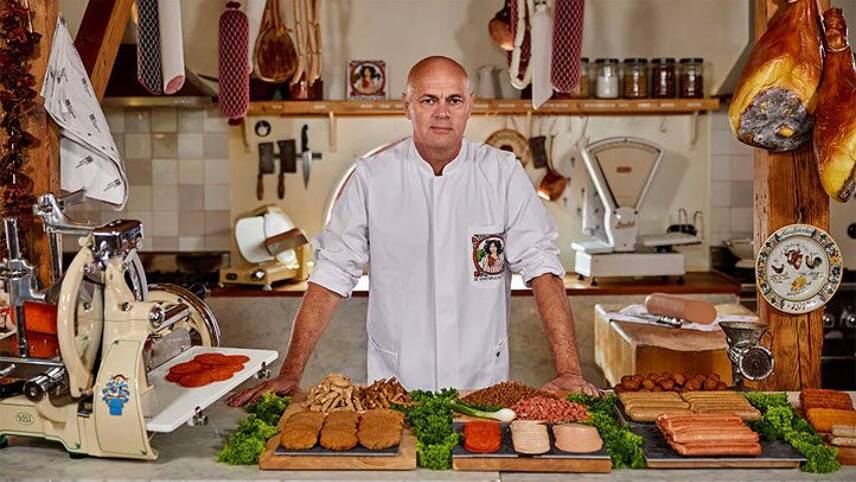Register for free and continue reading
Join our growing army of changemakers and get unlimited access to our premium content

Image: The Vegetarian Butcher
The FMCG giant has forged a partnership with ENOUGH, which has patented a zero-waste fermentation process that turns natural fungi into mycoprotein. The process involves feeding the fungi wheat and corn during the fermentation process and the resulting ingredient is, Unilever claims, high in protein, fibre and amino acids.
ENOUGH’s mycoprotein could be used to make plant-based alternatives to products like burgers, sausages and meat pieces. Unilever is hoping to scale production and add the ingredient to its ‘The Vegetarian Butcher’ brand. The Vegetarian Butcher was last year chosen as the supplier of Burger King’s Plant-Based Whopper and Plant-Based Nuggets across Europe, the Middle East and Africa. It has since been expanded into more than 45 countries and Burger King has selected the brand to supply a Vegan Royale in the UK and the Netherlands.
“Plant-based foods is one of Unilever’s fastest-growing segments and we’re delighted to partner with ENOUGH to develop more sustainable protein products that are delicious, nutritious, and a force for good,” Unilever’s executive vice-president of R&D for foods and refreshment Carla Hilhorst said.
“We’re excited by the potential that this technology has for future innovations across our portfolio, and we can’t wait to launch more plant-based foods that help people cut down on meat, without compromising on taste.”
Unilever’s overarching target on plant-based foods is to reach €1bn in sales by 2025-2027 and to increase the amount of so-called ‘Future 50 Foods’ – plant-based ingredients which are proven to have a lower environmental impact – used to make products for several of its most recognisable brands, including Knorr.
Aside from The Vegetarian Butcher’s offerings, the business has launched vegan ice creams through its Magnum and Ben & Jerry’s brands and vegan mayonnaise through Hellmann’s. Investor coalition FAIRR recently named Unilever as a leader in its sector, along with Nestle, on the plant-based protein transition.
Low-carbon diets
Vegan and vegetarian diets have been growing in popularity in markets including the UK and EU for several years now, with common drivers including animal welfare concerns and a desire to improve wellbeing.
In the past two years or so, however, the desire to tackle climate change has become a greater driver, and the trend has accelerated overall. According to the Intergovernmental Panel on Climate Change (IPCC), food and drink production has been the driver of 75% of deforestation by area size to date, with meat and animal feedstocks among the main driver. Land use, mainly for food, is attributable to 23% of global man-made emissions, the same IPCC analysis found.
This month, Thrust Carbon and plant-based protein manufacturer LoveSeitan published new data revealing that the production of beef, on a kilogram-by-kilogram basis, produces 130 times more carbon than seitan, which is made from wheat protein,
Seitan production generates 46.6kg of CO2e per 100kg, while the figures stand at 6,000kg of CO2e for beef, 2,400kg of CO2e for lamb, 2,100kg of CO2e for cheese and 300kg of CO2e for tofu.
“We expect this new data will make people think twice before choosing beef, lamb, chicken or cheese for their next meal,” LoveSeitan founder Steve Swindon said.
Sarah George


Please login or Register to leave a comment.